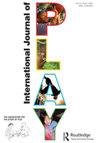趣味介绍11.2
IF 1.2
Q3 EDUCATION & EDUCATIONAL RESEARCH
引用次数: 0
摘要
我们以热烈的掌声开始,向DavidWhitebread的研究生涯致敬,这些研究生涯由Marisol Basilio, Deborah Pino-Pasternak和Dave Neale收集。怀特布莱德教授是剑桥大学教育、发展和学习中心PEDAL的首任主任。编辑们希望我们在这里纪念怀特布莱德教授。Let 's Play America的联合创始人Pat Rumbaugh在我们定期的playful memories & Reflections专栏中写下了她自己的好玩回忆和骑自行车的快感。如果我们往前走,我们会看到李·马丁和西亚拉·托马斯·墨菲在新冠肺炎期间通过远程学习进行修补的研究,然后是简·库珀、余孟林、泰德·布朗和琳达·麦凯关于学校孝道疗法的研究。许多人都非常关心这两个问题:我们如何通过治疗方案直接帮助全球儿童从COVID的隔离中康复?我们如何通过倡导修补和自由游戏间接提供帮助?还是说治疗方案是间接形式的帮助,而自由游戏是直接形式的帮助?回过头来看发展时间我们有两篇文章是关于玩耍和儿童早期的。Daniela Aldoney, Soledad Coo, Andrea Mira和Josefina Valdivia写了父母对智利幼儿园的看法。帕夫拉·博尔顿和阿曼达·托马斯研究了英国幼儿的户外游戏和图式发展。《国际游戏杂志》致力于研究游戏的微观世界和宏观世界,我们从描述性研究转向政策性研究。Edward B. Olsen, Emi Tsuda, James D. Wyant, Zach Gerken, Ian Capp, Gabriella Smith和Nestor Conforti共同努力为我们带来了参议院法案847:在公立小学实施新泽西州的休会法。“在我们这个领域,做游戏研究是代表所有孩子的政治行为。Ashli Venokur提供了一个额外的海盗主题游戏记忆。也许记忆本身就是一种盗版行为,而玩耍是我们人类创造有趣记忆的一部分。面对世界上发生的一切,Ashli Venokur提醒我们,我们都在同一条船上。伊丽莎白·塔克给我们带来了一本值得重读的书,玛贾塔·卡利亚拉的《变化世界中的游戏文化》。新书编辑Sylwyn Guilbaud分享了Rick Worch对Jacky Kilvington和Ali Wood的《反思游戏:为所有与儿童一起工作的人》的评论,Tim Gill评论了Rae Bridgman和Lauren Sheedy的《城市游乐场:儿童友好型规划和设计如何拯救城市》。没有比这更有希望的了。本文章由计算机程序翻译,如有差异,请以英文原文为准。
Playful introduction 11.2
We begin with an ovation, a tribute to DavidWhitebread’s research career as collected by Marisol Basilio, Deborah Pino-Pasternak, and Dave Neale. Professor Whitebread was the inaugural director of PEDAL, The Play in Education, Development, and Learning Centre at the University of Cambridge. The editors hope we honor Professor Whitebread’s memory here. Pat Rumbaugh, co-founder of Let’s Play America, writes of her own playful memories and the thrill of riding bikes in our regular Playful Memories & Reflections column. If we ride forward, we move to Lee Martin and Ciara Thomas Murphy’s study of tinkering through distance learning during COVID, and then to Jane Cooper, Mong-lin Yu, Ted Brown and Linda MacKay on school based filial therapy. These two subjects are very much on many peoples’minds: How do we help children globally heal from the isolation of COVID directly through therapeutic programs? How do we help indirectly through advocacy for tinkering and free play? Or is it that therapeutic programs are the indirect forms of assistance and free play the direct one? Riding backwards, turning to developmental time we have two articles on play and early childhood. Daniela Aldoney, Soledad Coo, Andrea Mira, and Josefina Valdivia write of parents’ perceptions of Chilean preschools. Pavla Boulton and Amanda Thomas examine outdoor play and schema development among young children in the United Kingdom. The International Journal of Play is committed to studying play as microcosm and macrocosm and we turn from descriptive study to policy. Edward B. Olsen, Emi Tsuda, James D. Wyant, Zach Gerken, Ian Capp, Gabriella Smith and Nestor Conforti combine efforts to bring us ‘Senate bill 847: The implementation of New Jersey’s recess law in public elementary schools.’ In our field, to do play research is a political act on behalf of all children. Ashli Venokur offers an additional pirate themed play memory. Perhaps memory itself is an act of piracy, and play is part of our human effort to create interesting memories. With all that is going on in the world, Ashli Venokur reminds us we are all in the same boat. Elizabeth Tucker brings us a book worth rereading, Marjatta Kalliala’s Play Culture in a Changing World. New books editor Sylwyn Guilbaud shares Rick Worch’s review of Reflective Playwork: For All Who Work with Children by Jacky Kilvington and Ali Wood, and Tim Gill reviews Rae Bridgman’s and Lauren Sheedy’s Urban Playground: How Child-friendly Planning and Design Can Save Cities. It doesn’t get more hopeful than that.
求助全文
通过发布文献求助,成功后即可免费获取论文全文。
去求助
来源期刊

International Journal of Play
Social Sciences-Cultural Studies
CiteScore
1.90
自引率
20.00%
发文量
60
期刊介绍:
The International Journal of Play is an inter-disciplinary publication focusing on all facets of play. It aims to provide an international forum for mono- and multi-disciplinary papers and scholarly debate on all aspects of play theory, policy and practice from across the globe and across the lifespan, and in all kinds of cultural settings, institutions and communities. The journal will be of interest to anthropologists, educationalists, folklorists, historians, linguists, philosophers, playworkers, psychologists, sociologists, therapists and zoologists.
 求助内容:
求助内容: 应助结果提醒方式:
应助结果提醒方式:


